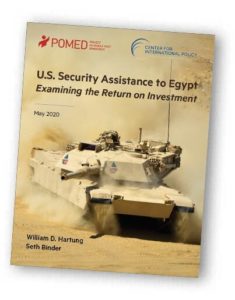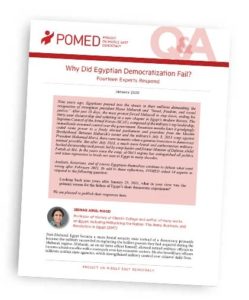 Egypt’s public prosecutor has said a young film-maker who died in prison had mistakenly drunk hand sanitiser in his cell, thinking it was water. Shady Habash died inside Cairo’s Tora prison complex on 2 May. He had been held for more than two years without trial, accused of membership of a terrorist group and “spreading false news” after he produced a music video critical of Egypt’s president Abdel Fatah al-Sisi, the Guardian reports:
Egypt’s public prosecutor has said a young film-maker who died in prison had mistakenly drunk hand sanitiser in his cell, thinking it was water. Shady Habash died inside Cairo’s Tora prison complex on 2 May. He had been held for more than two years without trial, accused of membership of a terrorist group and “spreading false news” after he produced a music video critical of Egypt’s president Abdel Fatah al-Sisi, the Guardian reports:
The 24-year-old was the latest in a number of high-profile people to die in custody in Egypt, particularly inside Tora prison. For months observers have been sounding the alarm about the denial of medical treatment to prisoners of conscience, including the deaths in custody of the US citizen Mustafa Kassem and the former president Mohamed Morsi.
“For over several hours, Shady’s cellmates desperately tried to summon medical help but were ignored by prison officials,” said the Cairo Institute for Human Rights Studies. “Such wanton cruelty is hardly exceptional – prisoners of conscience are often left to die in prison without trial or due process, in appalling conditions that include the deliberate withholding of healthcare.”
The United States should curb military aid to Egypt and stop turning a blind eye to human rights violstions under President Abdel Fattah el-Sisi, who presides over “the most repressive Egyptian state in modern history,” a new report suggests.
 U.S. security assistance to Cairo should be revamped —including a reduction in U.S. military aid, coauthors Seth Binder and William D. Hartung write in a new report (above) jointly published by the Project On Middle East Democracy (POMED)* and the Center for International Policy (CIP), “U.S. Security Assistance to Egypt: Examining the Return on Investment.”
U.S. security assistance to Cairo should be revamped —including a reduction in U.S. military aid, coauthors Seth Binder and William D. Hartung write in a new report (above) jointly published by the Project On Middle East Democracy (POMED)* and the Center for International Policy (CIP), “U.S. Security Assistance to Egypt: Examining the Return on Investment.”
“Instead of using the assistance to develop the military’s capabilities and advance shared national security interests, the Egyptian government has misused the aid for patronage and prestige,” the report states.
Sisis’s regime has “engaged in a systematic pattern of gross human rights violations, from gunning down peaceful protesters in the streets to jailing tens of thousands of political opponents, severely restricting the ability of independent non-governmental organizations (NGOs) to operate, all but eliminating a free and independent press, and perpetuating tensions between Muslims and Christians,” the report adds.
Preview of Key Recommendations
- Cut military aid by $300 million per year
A significant reduction in military aid will signal to the Egyptians that U.S. assistance is not an entitlement, but rather is dependent on their conduct. The $300 million should be repurposed as humanitarian assistance for the global effort to overcome the COVID-19 pandemic.
.  Remove the national security waiver that allows circumvention of human rights conditions
Remove the national security waiver that allows circumvention of human rights conditions
Conditions on U.S. security assistance should continue to push for an end to torture in Egypt’s prison system; easing of restrictions on journalists, human rights defenders, and other NGOs; and an end to the killing, torture, and displacement of civilians in the anti-terror campaign in northern Sinai.
.- Increase transparency for how U.S. aid is used
To guard against corruption, journalists and U.S. officials must be allowed access to northern Sinai so that they may monitor the actions of the Egyptian military and provide a clear accounting of how U.S. funds are being spent.
. - Restrict U.S. aid for sustainment to Egypt’s most urgent security challenges
The Egyptian government continues to use U.S. assistance to maintain patronage networks rather than to address legitimate security threats. The United States should restrict the use of funds for sustaining existing stockpiles to purposes of antiterrorism and border, maritime, and Sinai security.
*A partner of the National Endowment for Democracy (NED).







